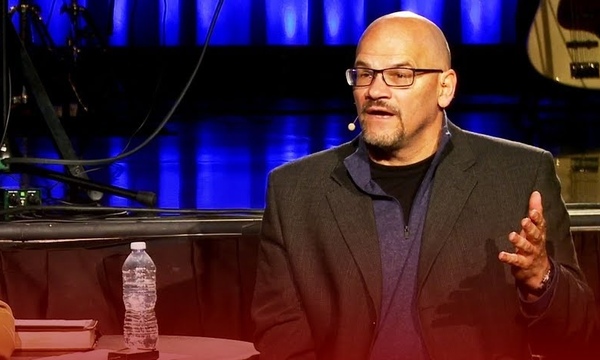Pentecostalism is the fastest growing segment of the church in urban communities, attaining growth worldwide. On the outskirts of Los Angeles, an epicenter of growing Pentecostal communities, sits Biola University, where one professor is researching why there is a resurgence of Pentecostalism.
“Pentecostalism represents a ‘reinvention’ of historic Protestantism and has itself been reinvented numerous times,” said Brad Christerson, associate professor of sociology and co-director of urban studies at Biola University. Christerson is one of eight grant recipients researching Pentecostal movements in Los Angeles specifically. Following three prior periods of Pentecostal ‘reinventions,’ it appears this could be a new wave of expansion — a fourth wave.
“The periods of restructuring and innovation in the Pentecostal movement have, interestingly, all been centered in the city of Los Angeles, from the Azusa street revival in 1906 to Aimee Semple McPherson’s LA-based Foursquare Gospel Movement in the 1920s, to the hippie and surf culture-based Jesus Movement in the 1960s,” he said.
University of Southern California’s Center for Religion and Civic Culture awarded $6.9 million total in grants for the completion of the Pentecostal and Charismatic Research Initiative to five regional centers and 16 individual grants, funded by the John Templeton Foundation. Christerson, working with the Los Angeles regional center, received $20,000 to complete his project to research if the Pentecostalism movement is experiencing yet another new stage of innovation in Los Angeles.
With his original interest in Pentecostalism resulting from its growth worldwide, especially in urban communities in America, Christerson plans to co-author a book focusing on his findings at the end of his research. He took some time to answer a few questions regarding the study for Biola.
How is Pentecostalism changing the world globally?
Christerson: It’s changing the world by bringing masses of people from all over the world into the kingdom. Some scholars think that currently the worldwide church is experiencing faster growth now than in any period in church history. And most of that growth is coming from the growth of Pentecostal and charismatic movements in Asia, Africa, and Latin America. It’s also changing the world through its innovative, grass-roots social ministries.
How are new movements in L.A. pentecostalism affecting the city?
Christerson: Pentecostalism is growing fastest among L.A.'s new immigrant communities. L.A. is a city of immigrants, and pentecostal churches are transforming the immigrant communities of L.A., particularly in areas where resources are scarce and needs are great. Pentecostal churches provide all kinds of services, resources, and places to connect with others in the community, as well as their main benefit — a place to connect to God in a very direct and supernatural way.
As co-director of Biola’s Urban Studies program, how do the initiatives of the grant connect with Biola’s initiatives?
Christerson: If we want to understand what God’s doing in the city of L.A., we have to understand Pentecostalism because that’s where the church is exploding in this city’s urban communities. If we want to engage the city, we need to understand and engage this movement.
A key component of Biola’s urban studies initiative is to develop strategic partnerships with organizations and ministries that are shaping the city of Los Angeles. This research promises to identify influential Christian ministries in the city of L.A. that we could learn from and develop strategic partnerships with.
What is a significant question within this fourth wave of Pentecostalism that you are particularly interested in?
Christerson: One of the questions I’m interested in is which types of Pentecostal ministries are attracting young people. One of my early, tentative findings is that the kinds of Pentecostal ministries that seem to be attracting young people are those that are focused on the Holy Spirit’s power to transform lives and entire communities of people that have been broken by abuse, addiction, and violence. Young people seem to be interested in taking the Spirit “to the streets” into these broken places rather than simply experiencing Him in a more comfortable and controlled church environment.
Jenna Bartlo, Media Relations Coordinator, can be reached at (562) 777-4061 or through email at jenna.l.bartlo@biola.edu.
 Biola University
Biola University


_(1).jpg)